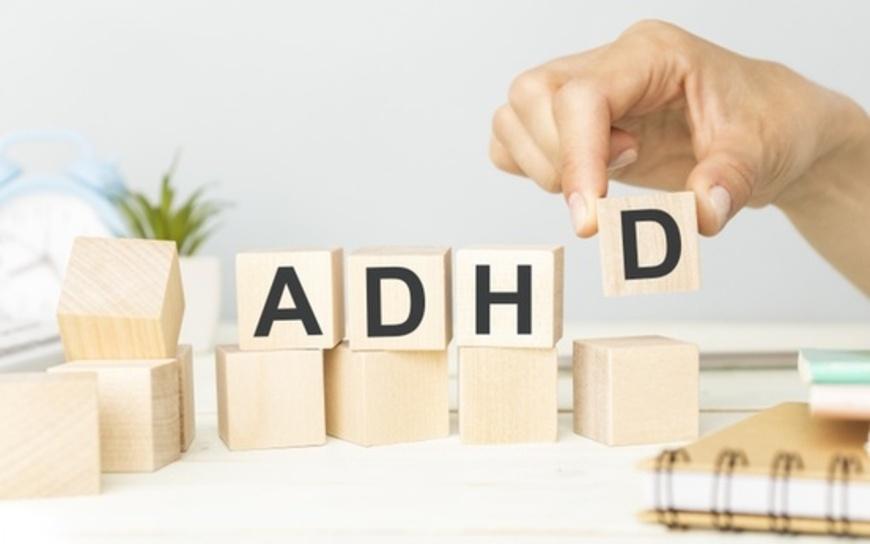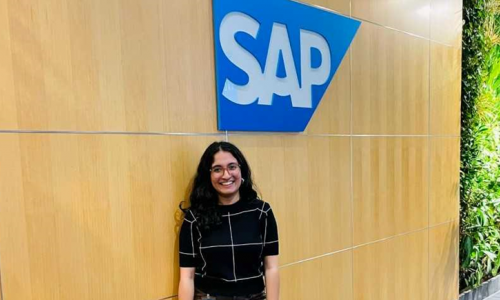
“You have so much potential. You just need to pay attention”
Sound familiar? As someone growing up with ADHD, I was told this constantly. My teacher would always write on my report cards, “Smart girl, but too chatty. Needs to pay attention in class.” My parents, who were never surprised by these comments, simply just said something along the lines of “try to talk a little less”. As a kid who consistently earned good grades, my parents really didn't feel too concerned. My chattiness along with my inability to focus and forgetfulness was simply chalked up to be part of “who TW is”. After all, this was part of my charm!
My younger brother, who had been diagnosed with ADHD at the age of 6 or 7 on the other hand, did not fit the normalized standards of what it meant to be a good student. In other words, his grades were not the best; meaning that my parents and his teachers became especially concerned, leading to an early decision to intervene; thus, the diagnosis. Meanwhile, I quietly carried on achieving academic success (well, not exactly ‘quietly’). Of course, I worked harder and put in more hours than anyone I knew. I was not necessarily working in all those extra-long hours, but I needed the extra time to factor in my constant distractibility! I couldn't sit down and write a paper in an hour, I needed 2 hours so I could harness the racing thoughts and take a walk or two!
It wasn't until my fourth year at SFU that I had really become tired of battling my own brain 99% of the day. Things shifted after some hurtful comments from co-workers during a training session. Over the course of a two-day training session, our group moved from room to room, and I had forgotten my training binder in one of those rooms over five times. Although this caused an immense amount of frustration within myself, it was nothing compared to what my co-workers had said to me: “What is wrong with you?''
Unsurprisingly, this was followed by comments about my intelligence and the ability to function as a ‘normal’ human being. I hated myself. Why couldn't I remember to bring my binder along with me? Events like this have happened my entire life, but it wasn't until this moment that I thought, maybe there really is something ‘wrong’ with me.
As someone who has always struggled with depression and anxiety, a hurtful comment like this quickly escalated into a downward spiral. It wasn't until after a few weeks of depressive episodes and self-loathing that I realized I needed to learn how to live with myself. This is when I went to see a counsellor with SFU’s Health and Counselling Services.
Upon meeting with the counsellor, I found it surprisingly easy to spill my guts about my struggles with myself; including my rather low self-esteem. It felt so good to have somebody hear me, and not tell me “oh, I struggle with that too!” with a shrug and a laugh. My counsellor was insightful and patient with me, I was thrilled to be listened to. Nearing the end of the session, I was expecting to hear something along the lines of “sounds like you struggle with depression and anxiety”, which I already knew. To my surprise and utter shock, they said to me “your symptoms seem to align with focus and attention issues”. I brought up that my brother had ADHD and the counsellor shared that ADHD can run in families.
She asked if I had ever been assessed for ADHD.
This diagnosis had never even crossed my mind. I began to research, to read about other people’s experiences, and talk to those I knew who had been diagnosed. (I also watched a million ‘How to ADHD’ videos, if you haven't heard of this YouTube channel yet, check it out).
Everything made sense now: my struggles with inattention, forgetfulness, insomnia, and even my struggles with things such as emotional regulation, disordered eating, alcohol consumption, depression and anxiety (which are often co-morbid disorders with ADHD); could be traced back to something that is pretty well understood by the medical community, something that I could receive support for. I stopped blaming myself and I stopped carrying the constant guilt. And, most importantly, I stopped hating myself. I had an idea of what was going on inside my mind now, and now that I understood, I could learn how to be the best version of myself.
I met with a doctor at SFU HCS and was formally diagnosed with ADHD. I continued with the counselling sessions, implemented tips and tricks to manage my symptoms and started medication. Although medication is not the only way to help manage ADHD, it sure as hell helped me. Honestly, it was lifesaving. Everything that I had been struggling with for so long, suddenly seemed manageable. Of course, medication doesn't make ADHD go away, but it helps to minimize some of the debilitating symptoms. I was able to concentrate in lectures, I stopped forgetting things as much, my sleep improved, and my binging and purging sessions became extremely limited. I stopped relying on things like food, sex, and alcohol, to feel ‘normal’. That does not mean I don't enjoy those things, but it means I can live my life without overusing these things to feel pleasure.
As my mother always said ‘life is about balance’, and after years and years of feeling like that was unattainable, I feel like my life is becoming a little more balanced.
Reaching out to someone for support can be incredibly difficult, but there’s really no reason not to go. We all need support. If I hadn’t gone to HCS, I would still be confused about how to manage these symptoms, and so I would probably still be feeling hopeless. Because I chose to reach out, I am here. I am healing, learning, growing, and learning to love myself as I have never before.
Beyond the Blog
-
Book and appointment with a doctor at SFU's Health & Counselling Service
-
Book an appointment with their Counselling Services
-
You can also visit Drop-in HCS Advising to speak with an Access Case Manager one-on-one and learn about how Health & Counselling can support you best















